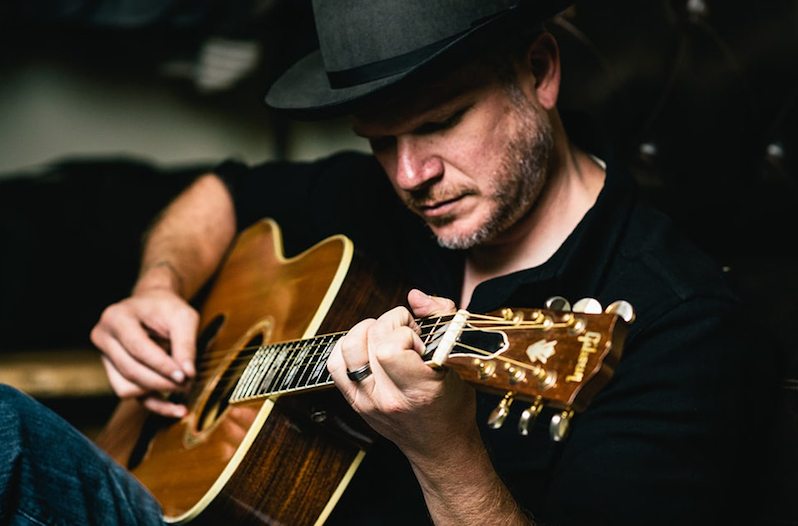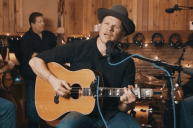As a critically celebrated songwriter, Jason Eady built a steady following of neo-traditional country fans. Since 2005, he built a career as a thoughtful poet who doesn't overindulge the senses.
A respected figure among the Texas country crowd, Eady's biggest talent is tackling heavy concepts with remarkable simplicity.
On his new self-titled album, Eady turns tales of being on the other side of wrongful imprisonment, poverty, wanderlust and lessons learned through the decades. And he does it all with a surprisingly nonchalant attitude and understated vocabulary.
Deliberate and Easy
Heck, maybe that's the reason he just called the album Jason Eady. Six records in, sometimes you need to just return to the basics. Which certainly describes the bare bones production approach.
Now, that's not to say any of his previous five albums dipped into the murky depths of pop production. But this new album takes a lo-fi approach that, up against his previous records, feels deliberate and easy.
Even one of the most driving tunes, "Why I Left Atlanta," comes with a certain smoothness. The rest of the record feels right at home on the O Brother, Where Art Thou? soundtrack.
Or to put more simply, digs deeper into bluegrass roots and poor bastard lyrics than most of Eady's previous music. And it works.
Back to the Basics
The bulk of these tunes form around an acoustic guitar foundation. Most percussion comes from a snare with brushes and soft kick drum hits. But when Eady calls on some ear candy, he calls on the best.
Lloyd Maines lays down tasteful pedal steel lines, while the Steeldrivers' Tammy Rogers offers the occasional fiddle lick. Vince Gill and Courtney Patton (who is, in addition to an artist herself, Eady's wife) sing harmonies. Dobro, clawhammer banjo and other accoutrements provide context, but never step on toes.
Eady seems at remarkable ease in his vocal delivery. It's almost like you can imagine him singing from a rocking chair. And honestly, it's surprising to imagine somebody like Eady still exists. Somebody who manages to make an album feel as easy and instantly classic in the midst of iPhones and protests.
Eady's world doesn't seem to pay much attention to the rest of ours, and it's awfully nice to get sucked into his every once in awhile. Even the pain in songs like "Where I've Been" comes on like a slow ache instead of a sharp prick. It's more like the soreness after a long day's work. He just kind of eases you in.
Take Notes
Anybody looking to feel entirely authentic while still coming from an almost forgotten era, take a note from the Jason Eady album cover and, you know, take some notes. Eady has a knack for getting to the heart of the matter. On this album, he just chose not to dilute it.
Even on story songs with eye turning titles (looking at you, "Black Jesus"), it sounds like Eady just doesn't care to get lost in superfluity. He keeps his melodies just as simple, and what comes across is an undeniably complete and thorough album. Nothing sticks out as an outlier or sore thumb.
Eady is kind of the "one step further" artist in neo-traditional country. Once you've indulged in artists like Chris Stapleton and Jason Isbell, Eady goes further down the rabbit hole. Those brave enough to follow him find reward in truly well-crafted country. You know, the kind all the old-timers swear doesn't exist anymore.
Now, Eady's not likely to capture a global audience as large as the others, but he's just as likely to catch musical lightning in a bottle. And if his attitude on Jason Eady is any indication, he's not paying much attention to all that anyways.



